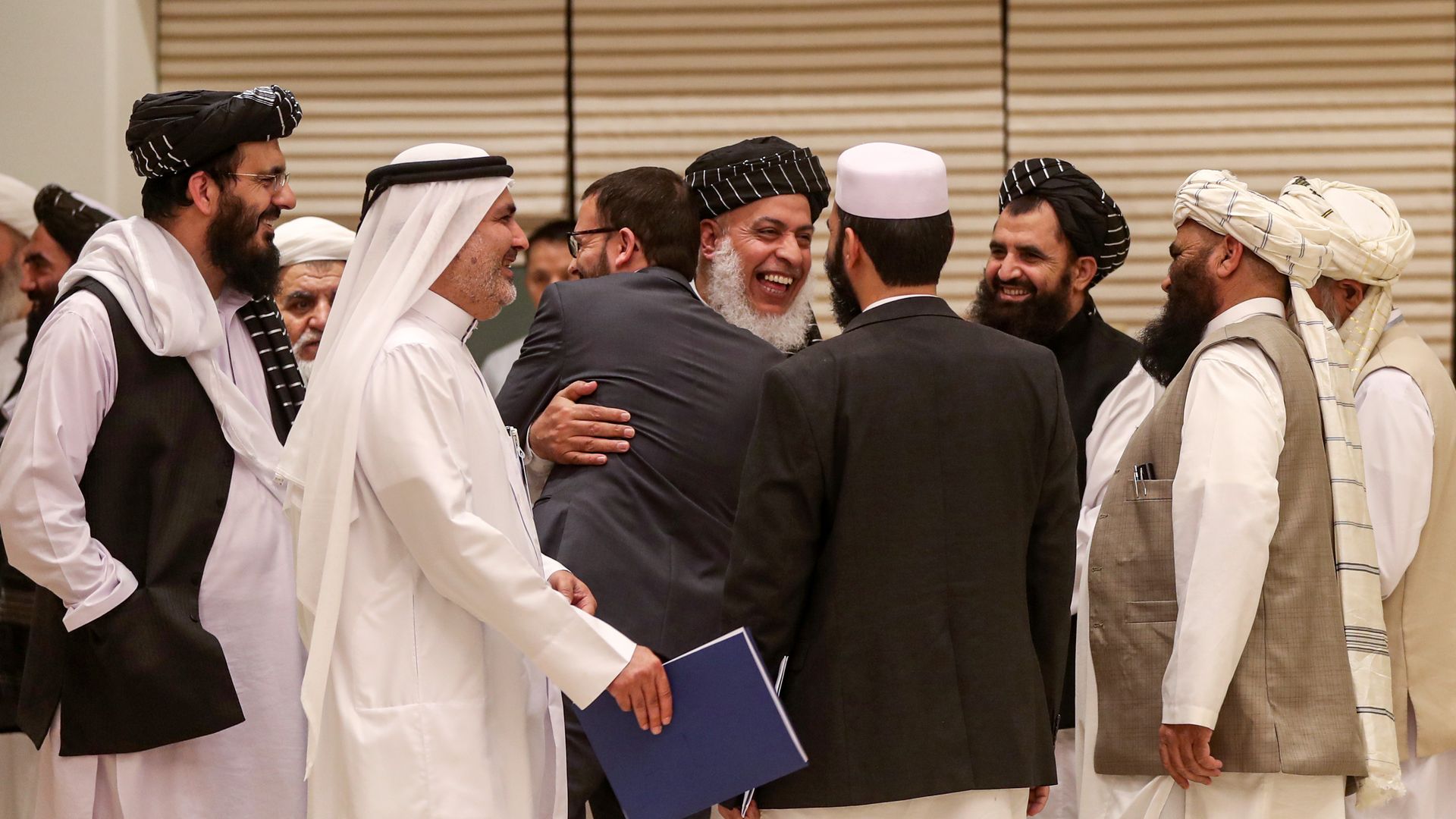Updated Feb 21, 2020 - World
U.S. and Taliban announce first step in Afghanistan peace process
Add Axios as your preferred source to
see more of our stories on Google.

Photo: Karim Jaafar/AFP/Getty Images
Add Axios as your preferred source to
see more of our stories on Google.

Photo: Karim Jaafar/AFP/Getty Images